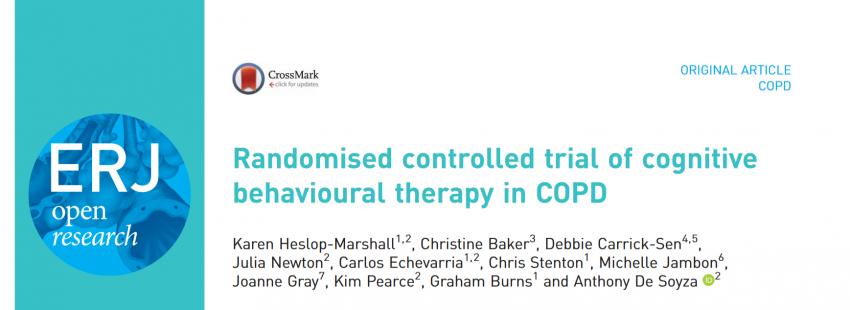This is a randomised controlled trial that was published in 2018. [1]
A total of 236 patients with a diagnosis of mild to very severe COPD took part in the trial. Each patient was screened for anxiety using the HADS-Anxiety Subscale. This is a questionnaire that asks patients about their feelings of anxiety and depression over the past week.
All the patients entered into the study scored eight or higher (at least mild anxiety) on the HADS scale. In total, 59% of those screened for entry into the study had raised HADS scores; anxiety is very common in COPD. Over three months, patients were either given leaflets on anxiety management or given leaflets as well as CBT. The CBT coached patients on developing coping strategies to deal with the anxiety caused by breathlessness, to help to improve physical activity levels.
All patients received standard medical care. If eligible, they also received pulmonary rehabilitation.
After three months, patients completed the HADS-Anxiety questionnaire again to assess how the different treatment methods affected their levels of anxiety. The researchers found that CBT was more effective in reducing anxiety symptoms in COPD patients compared to leaflets alone; on average, the HADS-Anxiety scale scores of CBT patients improved by 3.4, while patients in the leaflet group improved by just 1.9. For each patient who attended CBT, there was an average saving of £1,089 for reduced hospital admissions and £63 for emergency room attendances.
There was no link between a patients’ lung function and their anxiety score. Patients with mild COPD can have significant anxiety symptoms.
1 Heslop-Marshall K, Baker C, Carrick-Sen D, et al. Randomised controlled trial of cognitive behavioural therapy in COPD. ERJ Open Res 2018;4:00094–2018. doi:10.1183/23120541.00094-2018


